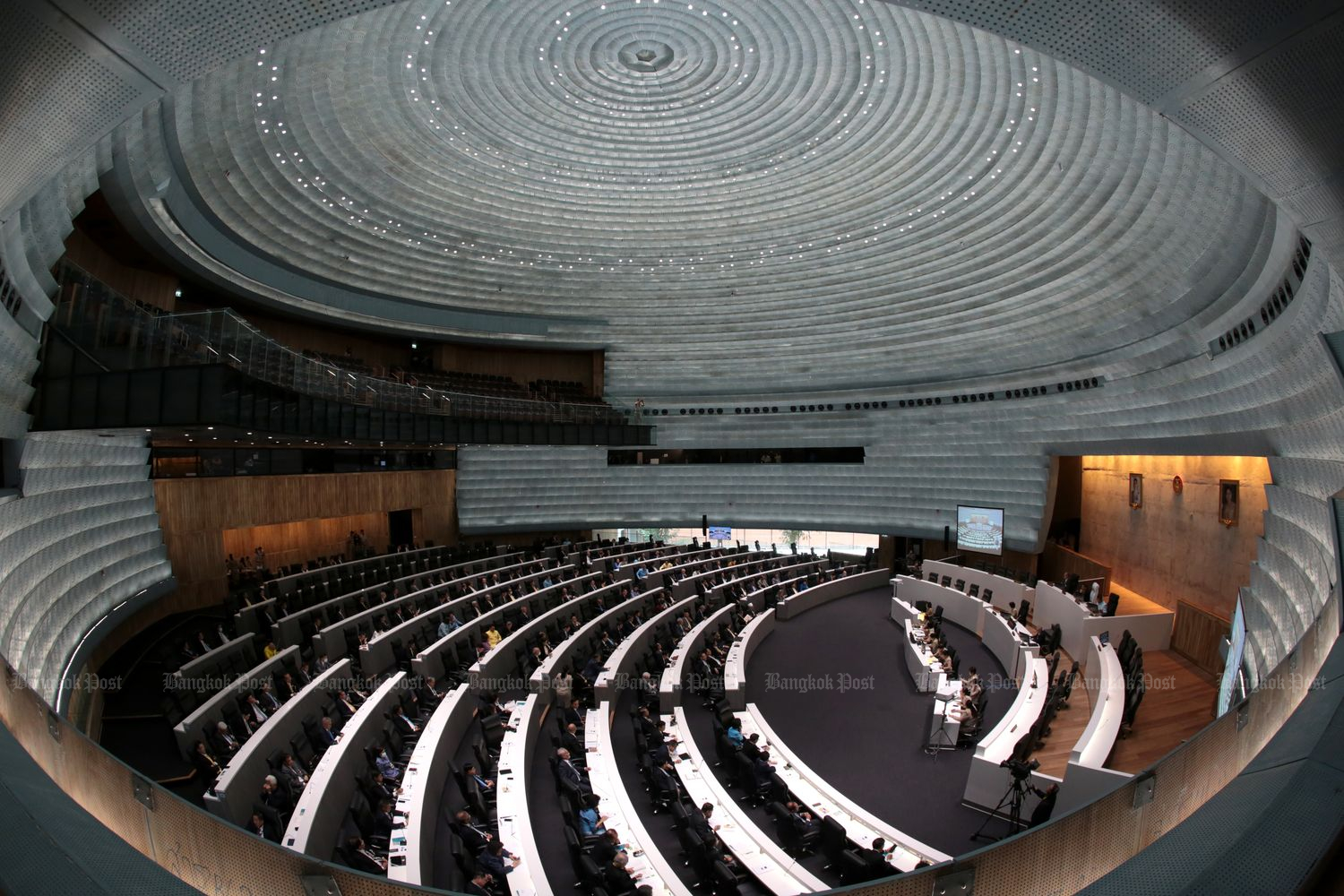
The government is poised to lose the majority in the House of Representatives after another micro party threatened to pull out of the coalition because it did not get to chair a House committee.
House speaker Chuan Leekpai presided over a meeting among representatives of all parties on Friday to discuss which parties would get to chair all 35 House permanent panels.
The one-hour meeting agreed coalition parties were allocated 17 committees while the opposition got 18. The 10 one-MP micro parties, which sought to group together to bargain for a seat among them, were left empty-handed, prompting one of them to make the threat.
While the ratio for panel allocation is one committee chairman for every seven MPs, the 10 MPs of the micro parties could not qualify for one seat. This was because, unlike the previous charter, the current constitution does not allow for the application of the political groups concept to the allocation of panel seats, the meeting concluded.
If the renegade micro party makes good on the threat, the government will lose itsmajority in the lower chamber, with 249 of 500 votes.
Pichet Sathirachawal, leader and MP of the Palang Prachatham Party, who made the threat, said he was deeply disappointed and would join Mongkolkit Suksintaranont, leader and MP of the Thai Civilized Party, another micro party which pulled out of the coalition earlier and pledged to be a people’s MP. What he meant was he would vote for either side depending on issues at hand and his own discretion.
However, this was not the first time Mr Pichet made the threat. He had second thoughts before and each time someone managed to change his mind and keep him on board.
Mr Pichet’s exit from the coalition would bring the number of independent MPs to four. Earlier, two MPs of Rak Puen Pa Party also pulled out of the coalition and vowed to act independently in Parliament after they were not allocated political positions at the Natural Resources and Environment Ministry in which it considered it had expertise.
On the rules, the meeting concluded each House committee would have no more than 15 MPs. Twenty-five MPs can sit on two panels while the rest can sit on one panel each, the meeting agreed.
On the coalition side, the Palang Pracharath Party will chair eight committees: (1) police affairs; (2) communications, telecommunications and digital economy; (3) finance, fiscal, banking and financial institutions; (4) House affairs; (5) military; (6) religions, arts and culture; (7) anti-money laundering and narcotics; and (8) science, technology, research and innovation.
The Democrat Party gets to chair four committees: (1) commerce and intellectual property; (2) agriculture and cooperatives; (3) national debt solutions; and (4) social welfare.
The Bhumjaithai Party was also allocated four committees: (1) transport; (2) tourism; (3) sports; and (4) public health while the Chartthaipattana Party gets the farm prices solutions panel.
On the opposition front, Pheu Thai was allocated 11 committees, which will also be shared with the Seri Ruam Thai Party: (1) energy; (2) education; (3) budget; (4) foreign affairs; (5) courts, state enterprises, public organisations and funds; (6) children, youth, women and elderly; (7) consumer protection; (8) industries; (9) natural disasters and public safety; (10) anti-corruption; and (11) public administration.
Seri Ruam Thai will get to choose from either the anti-corruption or public administration committee.
The Future Forward Party will chair six panels on (1) land, natural resources and environment; (2) state security; (3) laws, justice and human rights; (4) political development, mass media and public participation; (5) economic development; and (6) labour.
The Prachachart Party will chair the panel on decentralisation and special administration.
A permanent committee, which serves the full term of each House, considers bills, investigates issues and conducts studies on its area of expertise to be reported to the House for a vote and passage into laws.
The 15-MP committees cover areas such as laws, justice, human rights, constitutional organs, agriculture, transport, security, finance, consumer protection and foreign affairs.
A temporary committee may also be set up to consider some urgent issues not already covered by those areas It may consist of experts or non-MPs, as well as MPs.